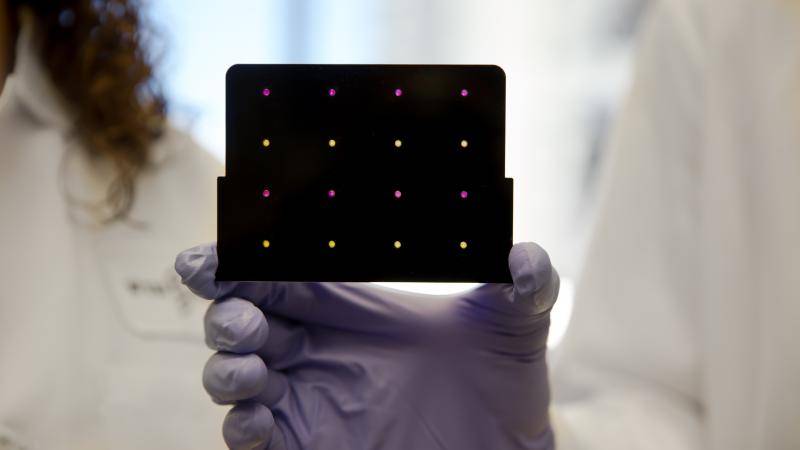With the imminent threat of new pandemics and frequent disease outbreaks exemplified by the recent Ebola and Zika epidemics, there is a growing need for low-cost, easily deployable and simple-to-use diagnostic tools. The Wyss Institute has developed paper-based synthetic gene networks as a next generation diagnostic technology for use in global healthcare crises and patient care.
To address these requirements, a team at the Wyss Institute has pioneered the use of paper-based synthetic gene networks as programmable molecular devices, which currently combines two novel technologies: (1) newly designed cell-free synthetic biosensors that are able to detect the presence of pathogen-derived RNA molecules and that couple detection events to the production of a coloured or fluorescent indicator protein, and (2) embedding of the biosensors in paper that can be freeze dried for long-term storage without refrigeration; these biosensors are fully functional upon rehydration with collected patient samples.
After proof-of-concept studies with successful detection of Zika and Ebola, the Wyss group is adapting this technology to identify other viruses like Human Papilloma and Hepatitis C virus as well as the composition of the gut microbiome. In addition, the team is further engineering this tool to detect different molecular classes beyond nucleic acids such as proteins and metabolites. There is untapped potential for broader use in a variety of application areas such as agriculture and pet health. link


